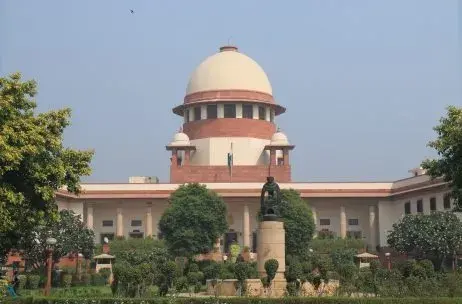Supreme Court Advocates Leeway for Government Adjustments in Citizenship Act, Cites National Interest
Supreme Court of India emphasized the need for the government to have the flexibility to make crucial adjustments for the nation’s well-being. The statement came during the hearing of 17 petitions challenging the constitutional validity of section 6A of the Citizenship Act, which is specific to Assam. A five-judge constitution bench, led by Chief Justice DY Chandrachud, highlighted the challenges faced by northeastern states, particularly those affected by insurgency and violence. Chief Justice Chandrachud stressed that governments must be granted “latitude and leeway” to make necessary adjustments, acknowledging the complexities and unique circumstances in various regions. Section 6A of the Citizenship Act, inserted as a special provision for individuals covered under the Assam Accord, outlines criteria for granting citizenship to those who migrated to Assam between January 1, 1966, and March 25, 1971. The provision sets March 25, 1971, as the cutoff date for citizenship, affecting individuals from specified territories, including Bangladesh. The bench, comprising Justices Surya Kant, M M Sundresh, J B Pardiwala, and Manoj Misra, is considering the constitutional validity of section 6A, particularly its impact on the rights of individuals and the homogeneous classification of states. Senior advocate Shyam Divan, representing the petitioners, argued that section 6A operates in a “blanket manner” and rewards illegal immigrants who continue to reside in Assam against the citizenship law. Divan called for a declaration of the provision as invalid and urged the government to formulate a policy for the settlement and rehabilitation of individuals who arrived in Assam after January 6, 1951. The court questioned whether Parliament could allow the continuation of strife in Assam due to discrimination among states. It raised concerns about the potential discrimination between states and the need for a balanced solution to address the complex issues faced by Assam. The hearing, which remained inconclusive, will resume on Thursday. The court had earlier sought data on the beneficiaries of section 6A to evaluate its impact on Assam’s demographic and cultural identity. As the legal battle unfolds, the Supreme Court’s stance reflects the delicate balance between national interest, security concerns, and the protection of individual rights.

